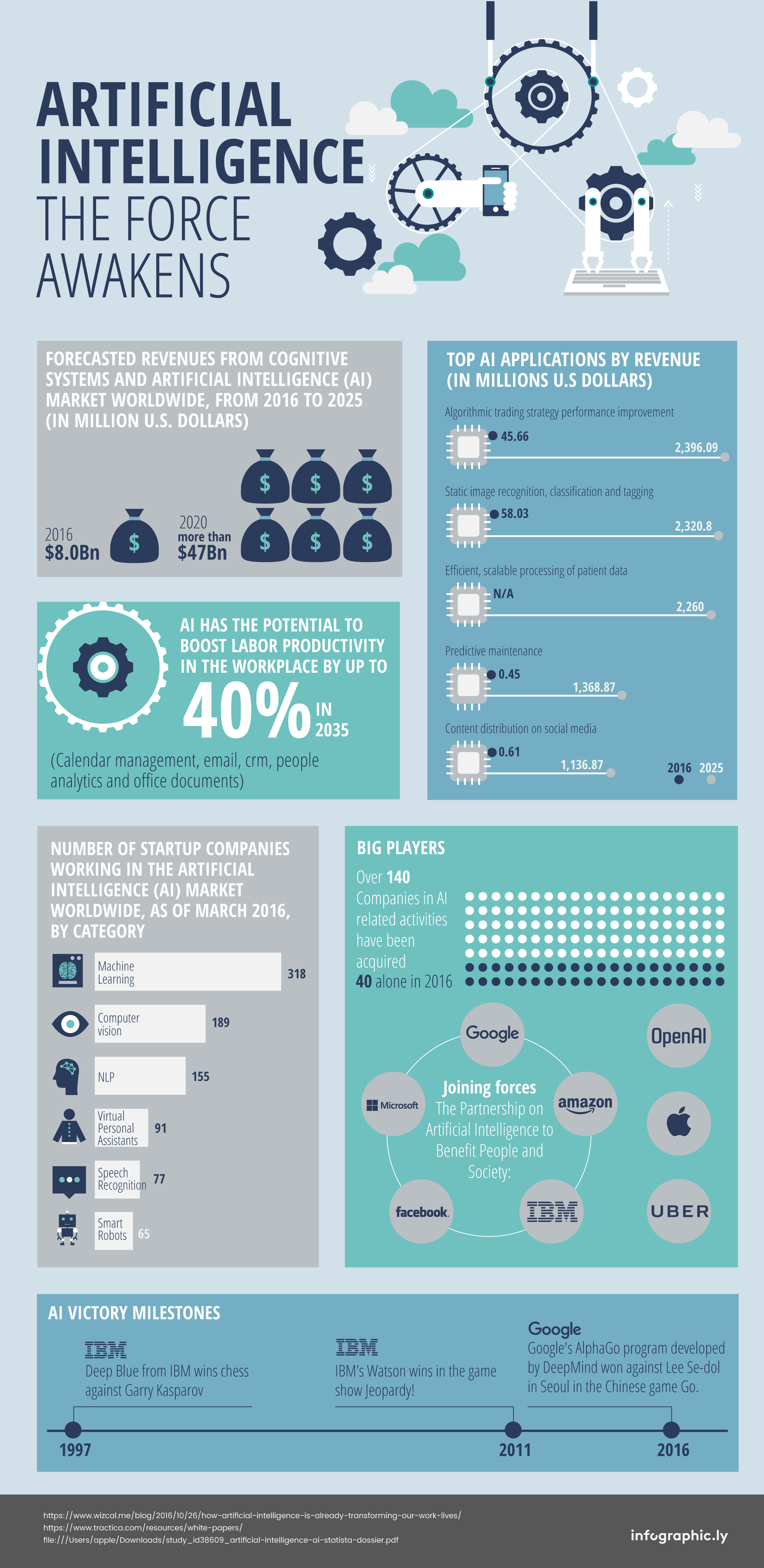[INFOGRAPHIC] Artificial Intelligence: The Force Awakens
Artificial Intelligence has always been a concept present in pop culture, in movies and books. We’ve all heard of robots threatening human kind, or machines capable of taking over the world (Who isn’t still haunted by Dolores’s “Good Morning Daddy”). Now that artificial intelligence (AI) is increasingly becoming part of our daily lives, we can no longer disregard it as a concept far away from our reality. Few technologies have been able to reshape how we live and interact, or even have a disruptive potential in terms of work and increasing productivity. Studies estimate that implementing AI (calendar management, email, CRM, people analytics and office documents) by 2035, would increase labor productivity by 40%.
AI investment, though in its infancy, is already receiving much attention from the media and the tech-world, and more and more companies are jumping on the bandwagon. More companies specializing in AI are being acquired, 40 alone in 2016. Within the next 5 years, AI and cognitive systems revenues are forecasted to increase from 8 billion U.S dollars to 47 billon U.S Dollars (almost a sixfold increase). Top AI applications include: algorithmic trading strategy performance improvement, static image recognition, classification and tagging as well as efficient, scalable processing of patient data. All of which are predicted to generate more than 2 billion U.S dollars in 2025.
It is no surprise that leading the AI race are big players such as IBM, Google (DeepMind), Amazon, Microsoft and Facebook. The latter even formed a partnership dubbed: The Partnership on Artificial Intelligence to Benefit People and Society. Uber, Apple and OpenAI (co-founded by Elon Musk) have also endeavored to considerably research applications of AI in their softwares. Other initiatives around AI include giants Google and OpenAI open-sourcing their deep learning code. Apart from trying to educate the public about AI, these initiatives give programmers the ability to “ train a single [AI] agent on any task a human can complete with a computer”.
More recently DeepMind has come into public consciousness when it developed a program capable of winning against Go champion Lee Se-dol. Previous AI victory milestones include IBM’s Watson winning on the show Jeopardy! and IBM’s Deep Blue winning the famous chess game against Garry Kasparov in 1997.
AI applications in machine learning, computer vision, NLP, and the virtual personal assistants such as Amazon’s Alexa all seek to replicate human behavior and reasoning. As of today, the commercial applications of AI efficiently guide customers, the trickiness though, lies in translating a reasoning exempt of human bias and prejudice

